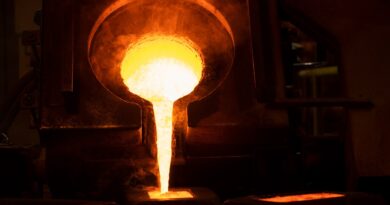Tin a target for Audi in new recycling research
The Audi Environmental Foundation (AEF), collaborating with the Freiberg University of Mining and Technology, Germany, is funding a research project focusing on a scalable recycling process. Named as “tweezer technology,” this method selectively extracts strategic metals such as tin, indium and gallium from electronic waste (e-waste), aiming to create more sustainable resource cycles.
Tin is an essential element in technologies such as photovoltaics and semiconductors, joining everything together. It has however been challenging to recycle due to its incorporation into intricate electronic devices. Current practices typically lead to a significant loss of this valuable metal when e-waste is processed. The technology hopes to circumvent this wastage, making tin recycling efficient and effective.
Dr. Betty Leibiger at Freiberg University is developing the new technology. She explains it involves specially designed molecules that bind selectively to desired metal ions in incinerated waste. These ‘ligands’ or ‘tweezers’ can then be manipulated to release the ions, ensuring high purity extraction of tin and other high-tech metals for industrial use.
This advancement could help tap a huge reserve of lost tin from the value chain. Approximately half of tin is used in solder, with the majority of that going to electronics that eventually become e-waste. Recovery of critical metals from e-waste is not new. However, operations usually target other metals such as copper and gold from the circuit boards, forgetting about the tin.
The ability to recover tin effectively from electronic waste presents a more sustainable and potentially less costly source for the industry.
The LME Tin price is rallying around $29,000, with support compared to other base metals. Despite the recent decline in backwardation, speculative funds remain net long amid enduring soft demand. Fluctuations in base metal prices are influenced by improved inflation news from the US and Europe, offset by discouraging growth figures from China. Indonesian tin exports remained strong in June, while Bolivia and Malaysia reported weaker than anticipated Q2 output. Chinese traders are more optimistic over potentially limited disruption due to the forthcoming mining hiatus in Myanmar, but there is no way to be sure.




